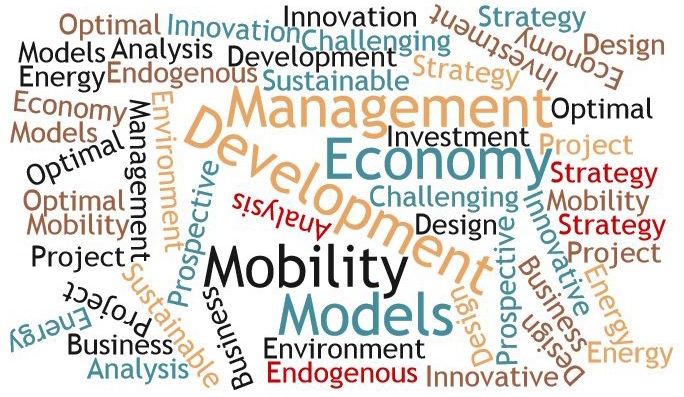SUSTAINABLE ECONOMY RESEARCH GROUP

| MEMBERS | PUBLICATIONS | DEFENSES HISTORY |
The Sustainable Economy Group deals with research in economics and management: assessment of innovations, including their economic impacts on organizations and the societies, with a particular focus on eco-innovations and ecological transition, for the two critical sectors of mobility and energy.
‘Sustainable Economy’ is articulated around 3 major directions:
1) “Economics and Management of Innovation” . This first direction deals with the evolution of technical progress and the effectiveness of organizations. We seek a better understanding of economic agents’ decisions regarding investment and innovation, their microeconomic impacts on firms’ growth, the organization of production, and operational efficiency. This research is conducted using optimization methods, econometric studies, as well as case and field studies.
|
Research Group Head
pascal.da-costa @centralesupelec.fr +33 (0)1.75.31.64.16 Building Bouygues - Office SB240 |
2)"Economics and Management of Mobility." This second direction deals with decarbonated mobility (Chair PSA), autonomous electric shuttles (Avenue and ULTIMO European projects), mobility as a service (MaaS), as well as with the links with the electricity market (i.e., hybrid energy market = electricity + transportation) through the challenges of electric storage (electricity storage/unloading solutions through electric vehicles). This research is conducted using techno-economic studies (qualitative and quantitative), econometric methods, and strategic analyses, notably innovative business models on sustainable mobility.
3)“Economics and Management of Energy”.This third direction deals with the economics of energy systems and energy infrastructures including power, hydrogen, storage and renewable technologies, carbon capture and storage (CCS) and negative emission technologies (NET). It aims at analyzing the economics of the transition towards low-carbon energy systems and the multifaceted implications of carbon-neutral economies (with RTE, CEA, EDF, IFPEN…). It considers a variety of research questions pertaining to energy technologies, energy efficiency, market design, industrial organization, the economic regulation of infrastructures, public policies and their social effects (e.g., redistributive effects of carbon taxation). This stream of research applies and develops a variety of research methods in techno-economics, microeconomics, game theory, system dynamics, forecasting and foresight analyses, global value chains.
KEY FIGURES
- 33 Members
- 3 Research Chairs
- 7 PhDs completed
- 12 Journals
- 2 European project
- 9 Conference papers
Events
- NEW Master Paris-Saclay in Économie des Transports et des Mobilités Durables (ETM).
- Associated Research Chairs:
Chair Armand Peugeot on Electromobility and hybrid Technology by Stellantis.
Chair OPPBTP, Vinci, Eiffage, Legendre on Prevention and Performance.
Patronage by endowment fund Capitaldon on Sustainable Growth.
- European Projects:
H2020 AVENUE Autonomous Vehicles to Evolve to a New Urban Experience. Now: ULTIMO, advancing sustainable user-centric mobility with automated vehicles.
ERASMUS Mundus+ EUSL Europe Sri Lanka Capacity Building in Energy Circular Economy.
- Events
-E. Little received the Thinks Smartgrids Dissertation Award for her research on the use of smartgrids in energy transition.
- E. Jagu received the CS Societal Impact Dissertation Award for her research on the use of BECCS and CCS technologies in energy transition.
-A. Blanchard received the Best Paper Award at the Conference on Sustainability, Environment, and Social Transition in Economics and Finance.
-C. Megy received the Association des Économistes de l’Énergie Second Prize for best student papers.


